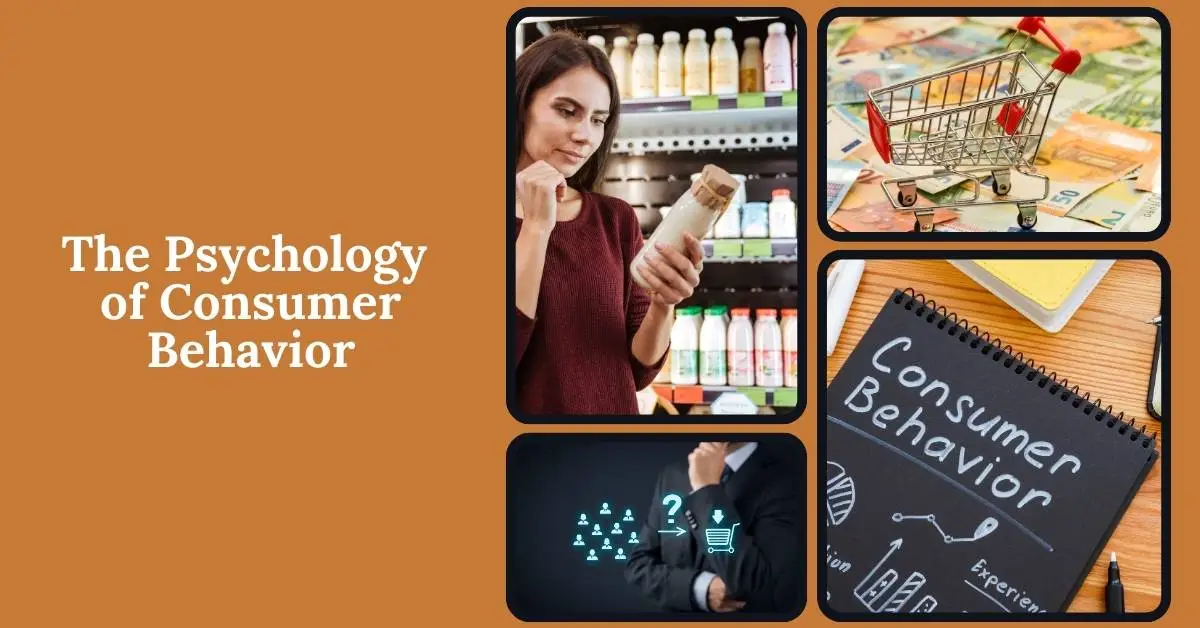
The Psychology of Consumer Behavior: Understanding Buying habits
Imagine you are in a supermarket store and surrounded by countless options, but you suddenly turn yourself reach for a specific brand. Ever thought about the reason behind this? This is because the product has something unique or brand value that may have positively influenced your perception.
This is called consumer behavior, which includes individual attitudes and decisions toward buying and using a product or service in the market. It can be greatly determined by factors like psychology, climate, culture, emotions, advertisements, etc.
Consumer behavior may change from time to time based on these influencing factors. That's why businesses do robust marketing to influence these factors to positively attract customers towards their product or service. Understanding consumer behavior helps organizations continuously target and retain potential customers.
Key Takeaways
- Understand the importance of consumer behavior to align products with customer needs and drive business growth.
- Learn how psychological factors like perception, motivation, learning, lifestyles, and attitudes influence buying decisions.
- Explore how emotions such as happiness, excitement, exclusivity, trust, nostalgia, and fear impact consumer behavior and brand loyalty.
- Understand the decision-making process, steps, and influences on buying behavior.
- Recognize the role of social influences, including family, reference groups, social norms, word of mouth, and social media, on purchasing decisions.
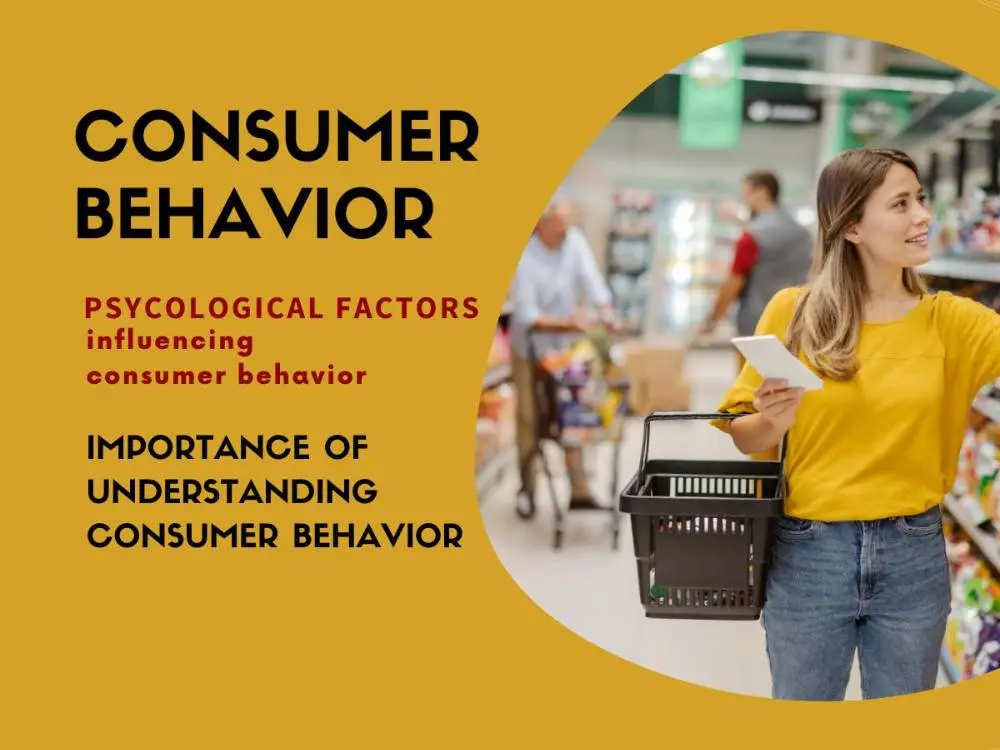
Importance of Understanding Consumer Behavior
Understanding consumer behavior provides valuable insights to businesses to plan their strategy implementations. Companies should figure out what specific products or services are in high demand among customers. Identifying consumer interests, buying habits, frequency, and many other important things related to consumer behavior is vital.
It also helps an organization strategically match its products or services based on its targeted customers' needs. So, it's really important to understand consumer behavior to increase sales and continuous growth.
Psychological Factors Influencing Consumer Behavior
Various psychological factors significantly influence consumer behavior. Here are some examples of those factors:
- Perception: This is based on how consumers think about a particular product or service. Consumers' perception is determined by different factors like personal experiences, product cost, product reach, manufacturing quality, culture, and advertisements. attractive packaging, benefits, and many others.
- Motivation: It drives consumer desires to fulfill their needs. Motivation can be from internal feelings, such as achieving something from purchasing, and self-satisfaction, or it can be from external sources like social status, pride, or any other.
- Learning and Memory: This factor may be from past experiences and knowledge. If consumers have a good memory of a particular product or service, they will be more likely to buy it again. If they have a bad memory or experience, then they will not prefer putting the product on their bucket list again.
- Attitudes and Beliefs: If a brand is trusted by consumers and they have a positive attitude toward the brand, it will have a high chance of repetitive purchases from them.
- Personality and Lifestyle: Personality and lifestyle differ from person to person. According to the individual personality and lifestyle pattern, consumer behavior changes, and they make purchasing decisions based on that.
Impact of Perceptions on Buying Behavior
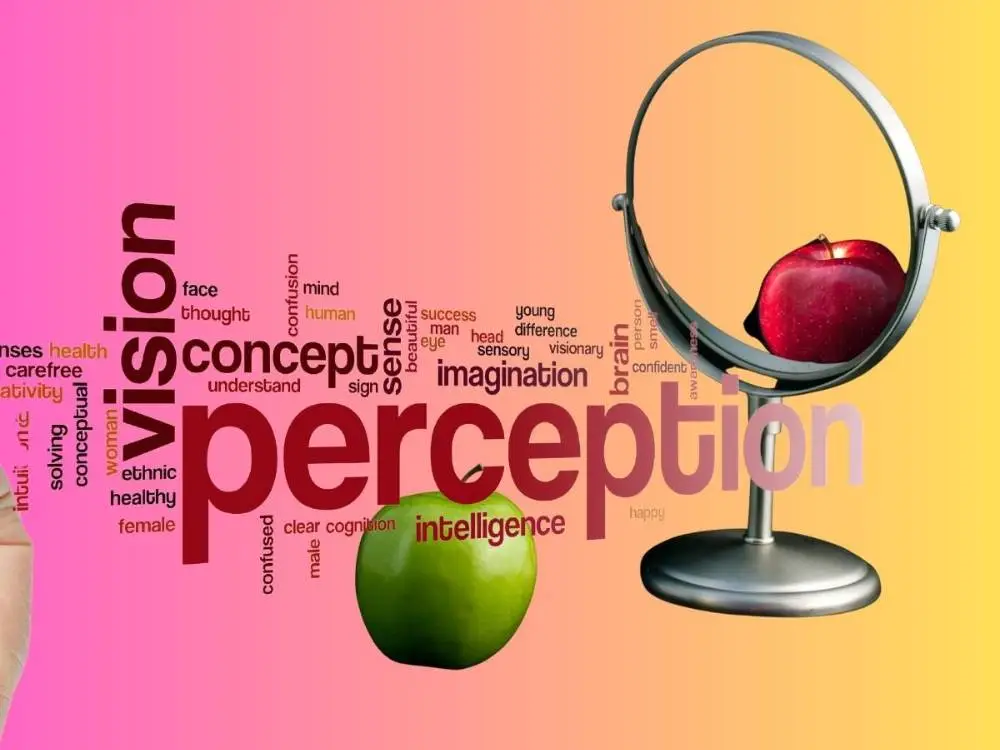
What is Perception
Perception is simply how people think about a particular product or service. It's their level of understanding and personal intuition related to the product when making a buying decision.
The perception may vary from person to person based on the individual's age, culture, experiences, tastes, desires, purposes, etc. The perception can both positively and negatively impact a business as it influences consumer behavior.
How Perception Influences Consumer Behavior
As you know, the perception of consumers is their feeling about a product or service. It directly influences their behavior when making a purchase decision. It can be a positive or negative factor, where some people have good thoughts about a product or service, and some don’t.
Likewise, some people buy some products more often and become loyal customers to a particular brand or business. It all depends on their perception, which greatly influences their purchasing decisions. This is why companies try to induce customer perception positively toward their products and services. To achieve this, they ensure the best quality, rigorous marketing, and many other things.
Factors Influencing Perception
Several factors can influence consumer perception, and here are some examples listed below:
- Personal Experience: This is about how good or bad a consumer experience was in the past with a particular product or service. It creates an assumption in their mind regarding the product and guides whether to buy the product again or not. The first experience always stays in consumer perception.
- Cultural Background: Cultural values and beliefs are people's perceptions. The difference in cultural background can influence their perception when buying products or services.
- Media and Advertisement: Different media and advertisements try to embed positive ideas in viewers' minds regarding the product or service. This means companies positively portray products or services through advertisements and digital media. This may greatly influence buyers’ perceptions.
- Product Quality: Consumer perception strongly stays on product quality, whereas poor-quality products lead to a negative perception. On the other hand, good-quality products have a positive perception of buying the product.
Many other influencing factors can make an impact on consumer perception and their purchasing decisions. For example, attractive packaging, benefits of the product, and many others that businesses should have an eye on in product marketing.
Emotional Appeal and Consumer Behavior
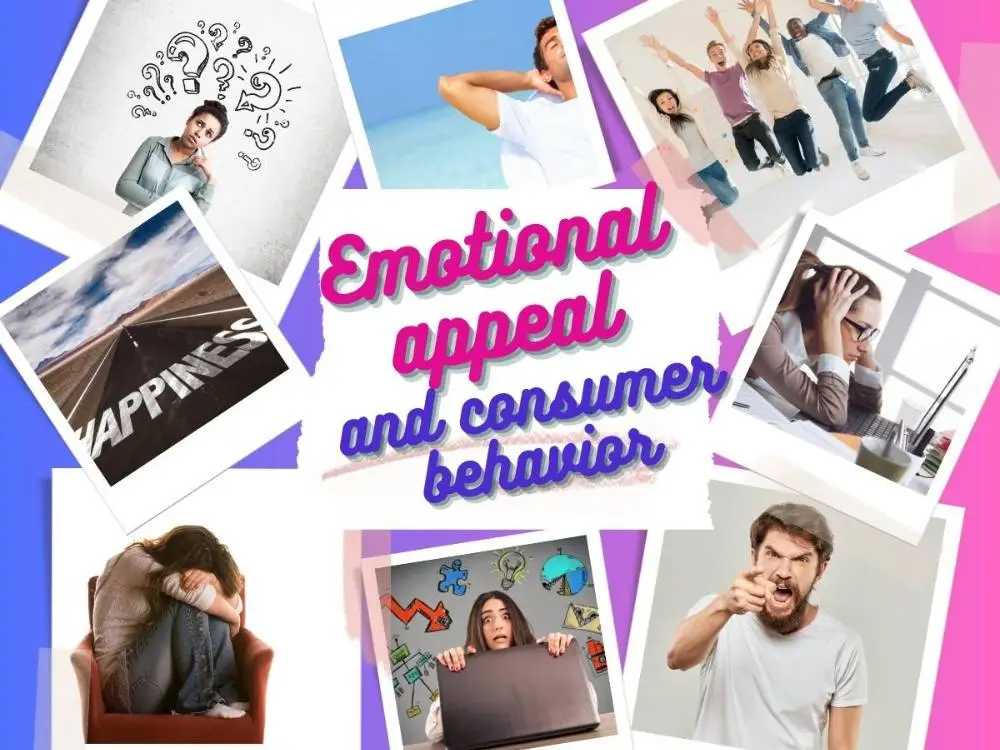
What is Emotion
Emotion is a psychological factor that can be stimulated through various factors such as attachment, relationships, memories, and many others. Consumer behavior is determined by people's emotions. Plus, customers make buying decisions according to their mental state of mind such as happiness, despair, anxiety, fear, anger, or any other.
Since emotions are a great influencing factor in consumer behavior, businesses can able to stimulate them to boost their product sales. Also, emotions play a vital part in consumer engagement and retention.
Why Emotions Influence Consumer Behavior
Emotions have a profound impact on consumer behavior for many key reasons:
- Personal Relevance: When consumers have a meaningful emotional connection with a brand or product, it can be more relevant to them and lead to increased interest and engagement.
- Decision-Making: Emotions are vital factors in decision-making processes. Consumers mostly rely on their emotions to justify their purchasing choices, which can override rational considerations.
- Memory and Recall: As per a strong, memorable experience, a product may have a significant emotional connection that impacts consumer behavior.
- Brand Loyalty: Some people are emotionally connected to a brand, and it's called brand loyalty. They tend to buy repetitively from that particular brand to fulfill their needs and are very loyal to the brand because of emotional attachments.
By creating emotional connections, brands can shape consumer perceptions, drive loyalty, and ultimately influence purchasing decisions.
Types of Emotions That Influence Buying Behavior
Different types of emotions can greatly impact consumer behavior. Here are some key emotions that influence decision-making:
- Happiness: It's a positive emotion, and when people are happy, they are more likely to buy the product or service. It's very important to make the consumers feel happy about the product or service. For example, celebrating birthdays is a happy occasion for people to buy cakes. candles and many other things.
- Excitement: It's a feeling where excitement induces consumer desire to motivate them to purchase or try new products.
- Trust: It can be a strong belief where the customer has an emotional belief in the product or service to be more trustworthy to buy.
- Fear: When people fear safeguarding their assets or belongings, it can drive them to purchase security products or services for protection. It can be a physical safety device, such as a simple padlock, CCTV, advanced access control systems, or a digital safety product like data security.
- Nostalgia: Sentimentally attached or missing a memorable event can provoke a consumer to make a purchase. It reminds them of the thing they are missing or sentimentally attached to.
- Exclusivity: Emotions related to exclusivity and status, such as pride or self-importance. This influences consumers to purchase products that enhance their social status.
Decision-Making Process and Consumer Behavior
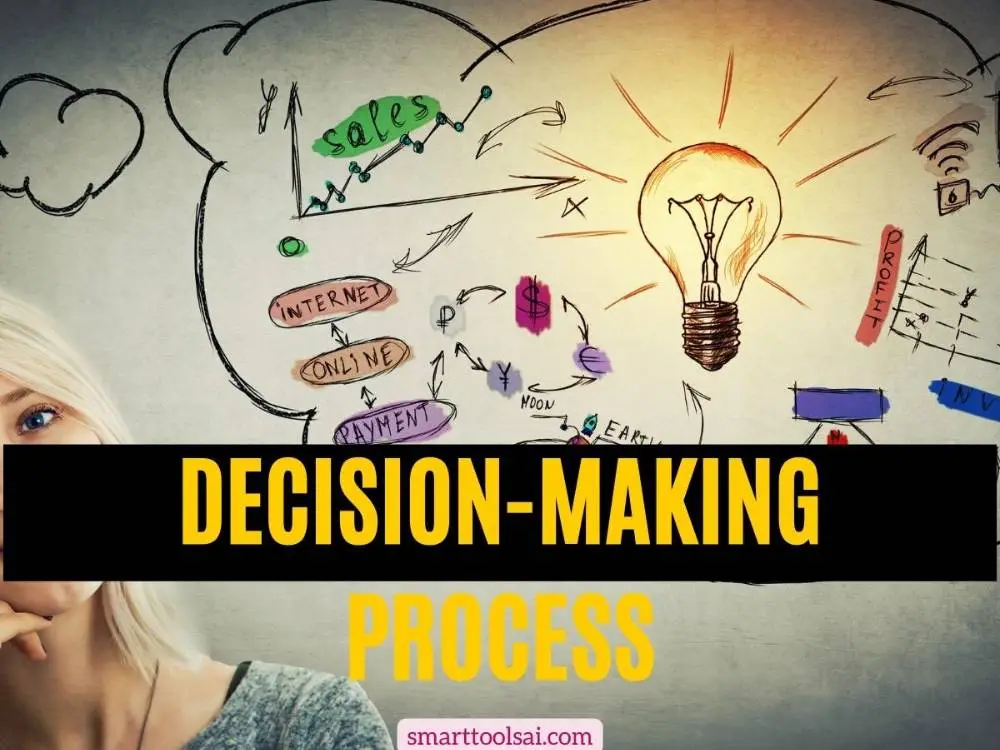
Steps in The Decision-Making Process
Decision-making is a cognitive process that consumers generally go through when making buying decisions. It involves various steps:
- Recognize the Needs: Consumers recognize their needs or wants that are triggered by an internal or external stimulation, such as an advertisement exposure or running out of a product.
- Search Information: Before making a purchase decision, consumers strive to gather enough information to gain knowledge on alternatives. They evaluate options and consult different online sources, expert reviews, and recommendations.
- Evaluate the Alternatives: Based on various factors, consumers compare and evaluate available alternatives. Many factors are evaluated, such as product price, quality, features, and personal preferences.
- Make the Purchase Decision: After a thorough evaluation of alternatives, consumers make a purchase decision to buy the specific product or brand.
- Post-Purchase Evaluation: Consumers reflect on their purchase decisions and evaluate their satisfaction. Positive experiences help reinforce brand loyalty, while negative experiences lead to dissatisfaction and potential brand switching.
How the Decision-Making Process Influences Buying Behavior
As the decision-making process involves different steps, it significantly influences the buying behavior of a customer. Consumers recognize their needs and fulfill their requirements by purchasing the product. They take a step forward to buy products that only offer proper satisfaction.
Before just jumping into buying products, consumers gather enough information, as it influences their buying behavior. There are so many good alternatives that can be a fit for their needs, which they thoroughly evaluate to choose the best one.
Also, the purchase is not merely done by going and buying the stuff. Instead, the purchase decision and the buying behavior are strongly influenced by the decision-making process.
Social Influence and Consumer Behavior

The Impact of Social Influence on Consumer Behavior
Social influence is all about consumer feelings or behaviors that can be triggered by social parameters such as family, reference groups, social norms, word of mouth, and social media channels.
Social influence greatly impacts consumer behavior and their purchasing decisions. Comprehending the role of social influence will allow businesses to tailor their marketing strategies to customer needs.
Organizations can shape consumer behavior and drive proper brand engagement by correctly targeting customer groups, encouraging positive word-of-mouth, harnessing social media influence, and aligning with social norms.
Types of Social Influences
Social influence on consumer behavior can be displayed in various forms, such as:
- Reference Groups: Reference groups are known as social groups with whom individuals desire is associated. These groups can be friends or online communities. Consumers are influenced by the reference group's opinions and preferences when they make purchasing decisions.
- Family: The family has a powerful influence on consumer behavior. Family members, especially parents and siblings, drive individuals' attitudes, preferences, and product choices through direct interactions, experiences, and shared values.
- Social Norms: Social norms are rules that individuals follow, and they influence consumer behavior by shaping perceptions of what is considered appropriate or desirable.
- Word of Mouth: Word-of-mouth recommendations and suggestions from trusted sources, such as friends, family, or online reviews, can significantly impact consumer behavior. Positive word-of-mouth creates room for building trust and influences buying decisions.
- Social Media: Social media platforms are one of the most meaningful things in social influence that create adequate influences on consumer behavior and buying habits.
Understanding these types of social influences helps businesses effectively create marketing strategies, acquire customers, drive more sales, and boost business profits.
Final Thoughts
Understanding consumer behavior effectively helps businesses increase the percentage of customers and sales. Various psychological factors like perception, motivation, learning, attitudes, and personality can significantly influence the decisions of consumers.
Emotions of the consumers, such as happiness, excitement, trust, and nostalgic feelings, are more likely to lead to product purchases. Consumers' buying behavior can be greatly influenced by the decision-making process, which contains recognition of needs, information search, evaluation of alternatives, purchase decision, and post-purchase evaluation.
Social influences from reference groups, family, social norms, word of mouth, and social media can impact consumer choices. Understanding these necessary factors helps businesses align their marketing strategies with consumer behavior and thrive in the competitive market.
FAQs
Q1: How do psychological factors influence consumer behavior?
There are different psychological factors like perception, motivation, learning, attitudes, and personality that can shape consumer behavior and impact purchasing decisions.
Q2: What role do emotions play in consumer behavior?
Emotions have a profound impact on consumer behavior that influences their choices and brand loyalty. Positive emotions like happiness and trust can lead to increased purchases.
Q3: How does the decision-making process affect buying behavior?
The decision-making process involves different steps like need recognition, information search, evaluation of alternatives, and post-purchase evaluation, which influence consumer buying behavior.
Q4: How can businesses leverage consumer behavior to increase sales?
By understanding consumer behavior, businesses can tailor marketing strategies, create emotional connections, and align products or services with consumer needs and preferences.
Explore Related Articles
https://smarttoolsai.com/post/marketing-automation-techniques
.webp)